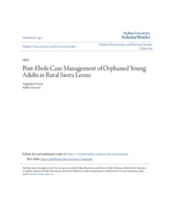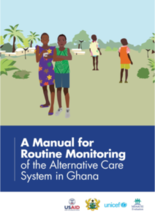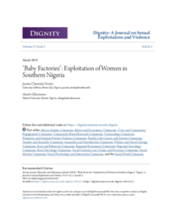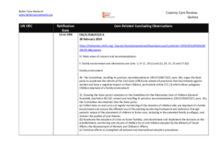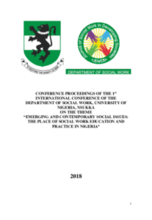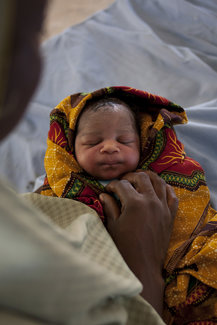

Displaying 151 - 160 of 634
The purpose of this transcendental phenomenological study (a doctoral dissertation) was to explore how post-Ebola student-orphans enrolled in an agricultural university in rural Sierra Leone experienced post disaster specialized case management to enhance student performance.
Under the guidance of Child Protection Specialist (UASC/Case Management), the national child protection consultant will support the State Ministries responsible for children in Adamawa, Borno and Yobe states to strengthen and ensure effective operation of the child protection information management system in these states.
Using qualitative methods of data collection, factors influencing child placement in Southwestern Nigeria were examined in this article.
The purpose of this manual is to provide guidance on how to collect and report data on children in formal alternative care in Ghana in a standardised way, and to analyse, present, and make the data available for use.
This paper examines the development and proliferation of baby-selling centers in southern Nigeria and its impacts on and implication for women in Nigeria. It demonstrates how an attempt to give protection to unwed pregnant girls has metamorphosed into “baby harvesting” and selling through the notorious “baby factories,” where young women are held captive and used like industrial machines for baby production.
This country care review includes the care related Concluding Observations adopted by the Committee on the Rights of the Child as part of its examination of Guinea’s periodic report to the Convention on the Rights of the Child.
This article examines the aftercare experiences of young people who have recently left a residential care institution in Lagos State, Nigeria.
Guided by social-ecological theory, this study explores responses to violence against children with disabilities, including preventative measures and treatment of victims in the West African countries of Guinea, Niger, Sierra Leone, and Togo.
This article presents the results of a systematic mapping of social work training programs in countries throughout West Africa, a region historically under‐represented in global discussions of the social welfare workforce.
The First International Conference of the Department of Social Work, University of Nigeria, Nsukka, with the theme “Emerging and Contemporary Social Issues: The place of Social Work Education and Practice in Nigeria” was held 10-13 September 2018 and included 96 oral presentations of papers by delegates from across the country. Several papers focused on illegal adoptions of children in Nigeria and the role of social workers in addressing this practice.

